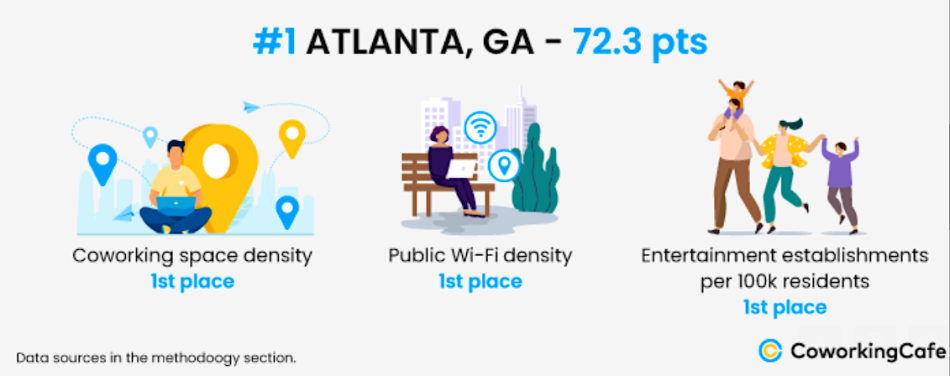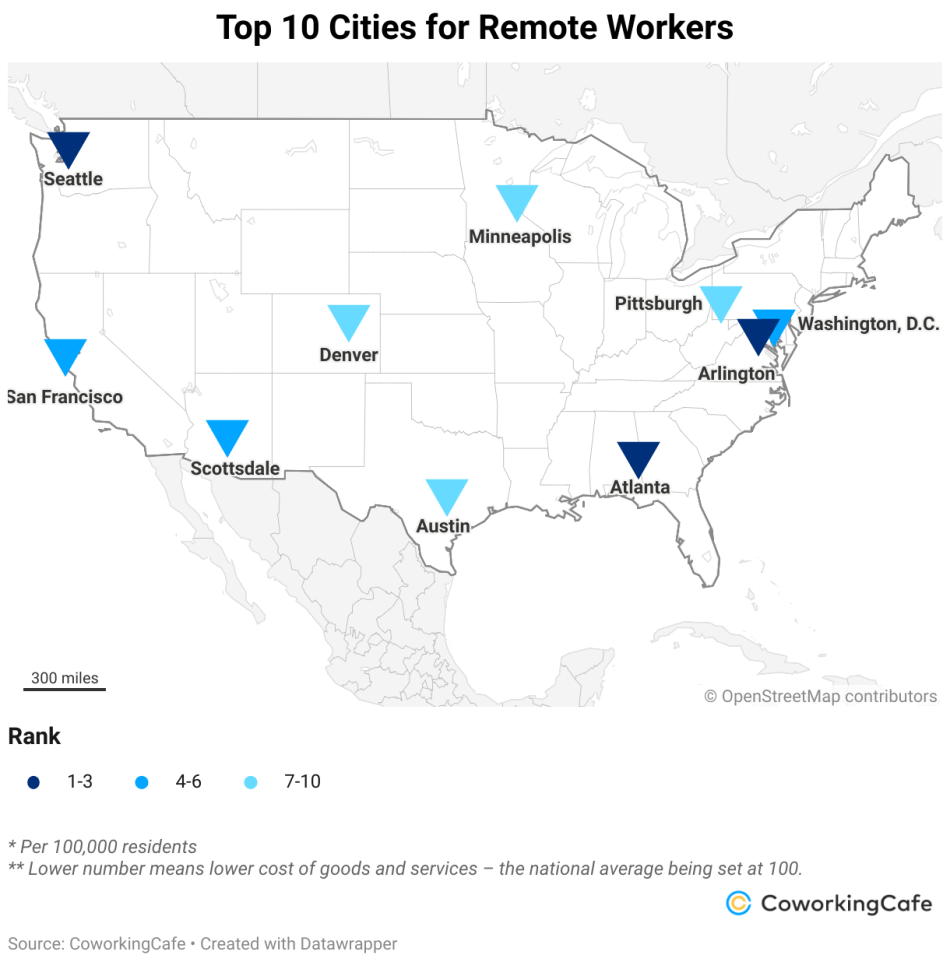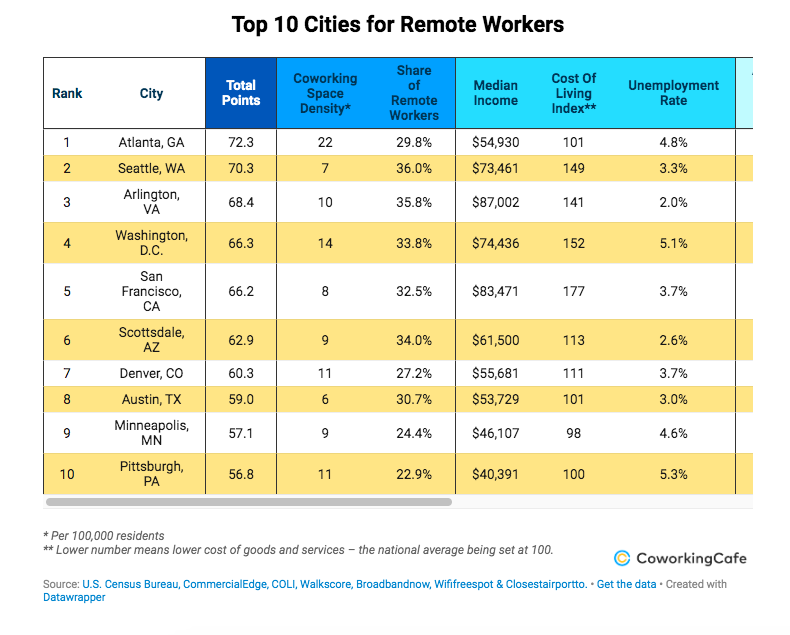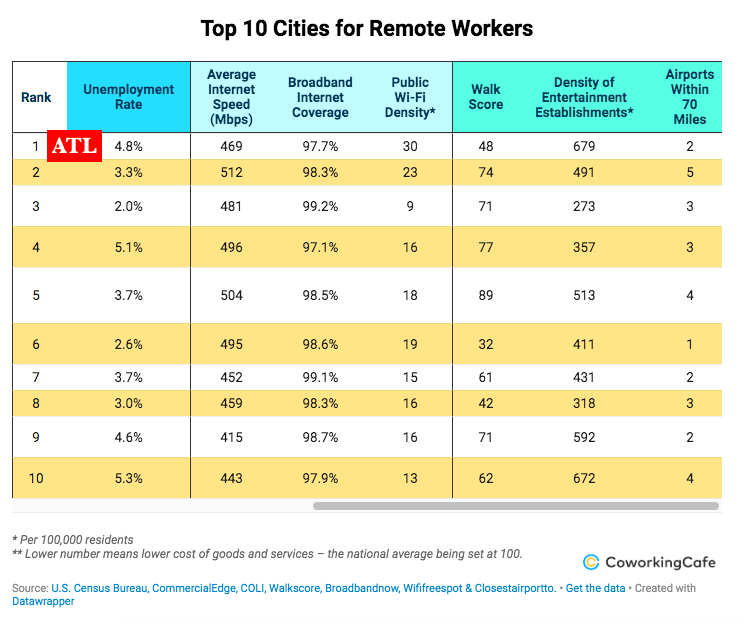For the second year running, the City of Atlanta has emerged atop a national ranking of cities that weighed numerous factors in search of the “ideal telecommuting hub” in the WFH—or is hybrid-working?—era.
CoworkingCafe, a national coworking space search service, has again crowned Atlanta the best city in America for working remotely, based on 11 key metrics in four categories.
CoworkingCafe—which, like CommercialCafe, is part of the Yardi network—set out recently to determine the recipe for a great remote city. They focused on U.S. cities with at least 200,000 residents and data available for all metrics analyzed.
Like its relatively low cost of living, Atlanta’s infrastructure for flexible work was generally deemed “excellent” by CoworkingCafe, particularly as it pertains to public Wi-Fi accessibility and abundance of coworking spaces.
“Atlanta offers a perfect blend of work and leisure for modern professionals,” researchers noted, in summary.
CoworkingCafe’s four categories—remote work, economy, connectivity, and infrastructure—weighed factors such as each city’s share of remote workers, availability of coworking spaces, accessibility of broadband internet, income, and entertainment/leisure options for shaking off those WFH blues.
Nearly 30 percent of Atlanta’s working population telecommutes right now, the seventh highest percentage among cities studied, per the analysis.
So what’s the ATL (still) doing right?
Atlanta ranked first for density of coworking places—22 shared office spaces for every 100,000 residents—among all places studied, per the website’s findings.
Analysts also found that Atlanta has the highest availability of public Wi-Fi networks per 100,000 residents, allowing for flexibility for freelancers and remote workers alike.
Atlanta also charted high in the category of local internet speeds (469 Mb/s).
Another factor considered was vibrant entertainment scenes, for which ATL ranked first, boasting almost 700 entertaining places for every 100,000 people. Per the metric breakdown, venues that were counted included everything from performing arts centers to amusement parks, sports arenas, restaurants, and bars.
Atlanta’s relatively dismal 48 average WalkScore did the city no favors, but its No. 2 ranking for number of airports within 70 miles did.
On the opposite side of the Chamber of Commerce fodder spectrum, an unrelated study earlier this month pegged Atlanta as the third-worst metro for commuting by car in the U.S. right now. Could nightmarish commutes and status as a WFH haven be related?
...
Follow us on social media:
• Analysis: Atlanta clunks as bottom five U.S. commuter city. Ouch! (Urbanize Atlanta)










